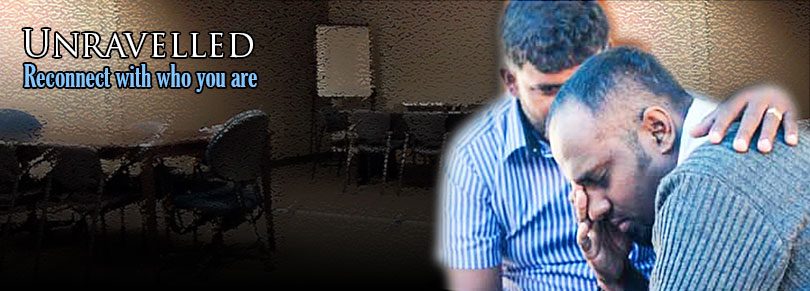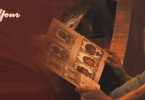“I was abused as a child!” “I saw my father beat my mother every day!” “My mother died when I was a child”…… Ah, how I envied those who could get the attention of the listener, within a couple of seconds, while describing their life story. My own story always seemed so bland, and fortunate when compared with the stories of those who could make such statements. And fortunate a life it was, for my parents are still married after 29 years, I have never seen my father raise his hand to my mother, I was sent to a good school, and I can’t remember ever going without a meal.
It is perhaps this keen awareness that I had such a privileged childhood that made me ashamed of dwelling on what I wished I had. This of course is a terrible mistake, and I will explain why at the end of my article. I wished for example that I didn’t have to tremble each time I heard my father’s footsteps echoing around the house. It’s not like my father abused me or anything. And yet I began to take the blame on myself for being afraid. It manifested in the way I stole sweets when I longed for something good to eat. It seemed less torturous than the internal trauma of having to ask for something to eat.
My fear of asking manifested in the never ending pacing up and down, outside my father’s door, when I had no choice but to ask for money to buy books for school. Stealing was easier and less tedious. In addition to this, I also seemed to have more chores than most of my friends did. “Chores” often required a full day of work. My dad personified what it meant to be a perfectionist, and my chores were often scrutinized to the last minute detail. Failure to meet his standards would simply mean that I get back to my work till my dad was satisfied.
As I grew older, I became increasingly socially awkward. I felt out of place among my friends, but I was too young to understand why. Going out with friends was also a traumatic experience as I had to keep inventing new ways to lie, to convince them why my parents wouldn’t allow me to join them. In reality I was too scared to ask for money to go out with my friends. I felt I could only ask if I had finished my “chores,” which was often never!
As I entered into my early twenties, I was privileged to maintain several of my childhood friendships. It seemed that in spite of my felt awkwardness, that my friends still enjoyed my company. However, my childhood fears still haunted me, only they manifested in different ways. I was working now as a music teacher to children but I kept entertaining thoughts that my teaching was never good enough. As you can guess, fees collecting day was a day of guilt, instead of being an occasion to celebrate hard work. I also avoided people because I got stuck in the middle of conversations. Conversations with new people included long gaps of awkward silence. I spent time writing out possible conversations with people and rehearsing them as well as I could. It never felt like it was good enough. As you the reader may have begun to understand, I have issues with money management and self-esteem, which was the cause for endless cycles of anxiety and worry. I felt like a complete misfit.
I knew I needed help and my journey towards changing the way I thought began when I started seeing a Counsellor and heard him describe the process of psychotherapy as a friendship. He went on to speak of even spiritual leaders, who no matter how much prayer they offered, could not overcome habits which plagued their personal lives. This made perfect sense, as I could well recall the repeated frustration of praying over and over again regarding the same issues, only to find them creep up on me and drag me down. From my background of faith, which is Christianity, and specifically from my own upbringing, I was taught to believe that prayer is the answer to everything. And even though I would have strongly denied it, had you asked me, my understanding of prayer, was often rather primitive. Perhaps I could liken it to communicating with a magician who at the wave of a wand performs miracles. Reflecting on what this gentleman said, it struck me (a rather hard stroke at that!), that my inability to deal with crippling patterns of thought and behaviour had a lot to do with how little I understood of my own responsibility towards the process of transformation. To put it simply, I was very unrealistic.
And so began my adventure, of which I will recall a memory from my first session. I was asked to narrate any particular incident which was troubling me in the present. At that time I was teaching music to a child. My new syllabus was more play oriented, and going by the response of the student, the parents, and even my own conscience, I was doing quite well. However, in spite of this, I began dreading every class, being guilt stricken that I was cheating the parents of their money by allowing half of the class to revolve around play.
I was then asked to pause and reflect on any incident which came to mind from my past. To this I responded by recounting playing in my parents room as a six year old child. I had some walking sticks with me, which to me served the purpose of being highly dangerous machine guns. My parents’ bed served as the perfect barricade from which to hide behind and snipe out my imaginary enemies. Hearing my father walk towards the room, I quickly collected the “guns” and threw them under the bed as fast as I could, and pretended to be doing something “more useful.” I really don’t know how that particular memory came to mind at that moment. However, I can never forget the way in which the counsellor so skilfully connected the two incidents into a seamless whole. He pointed out that I had grown up not fully understanding the value of play. And so as an adult, even though I longed to create an environment of play for my pupil, I struggled internally to sustain it, as I entertained thoughts that I was wasting time and money.
No doubt you as the reader, have your own reasons to why you would have felt like a misfit at times. And the thought I would like you to entertain is, don’t be ashamed to ignore the areas in which you feel life has been unfair to you. Don’t fall for the trap of thinking that there are larger problems in the world. It’s true, there’s always going to be someone who has been through more pain – doesn’t mean that you have to act like yours doesn’t exist. This was the big mistake that I made, allowing my shame to consume me to the extent that I kept it inside of me. It didn’t help. The more effort I took to cover up my shame, the more I was misunderstood by my friends. I blamed myself for things which were not my fault. I was angry with my parents, yet I was so consumed with the unfairness of life which I kept inside of me, that it prevented me from dealing realistically with the root cause. The root cause was not money or the lack of it. It was the fear to ask, and the feeling of never having done well enough. I would never have thought that being unable to ask for sweets, or for money to buy school books and hang out with friends would have led to so much misunderstanding, anxiety and worry. I would never have thought that what started off as endless chores, would result in me becoming perfectionist, driven not by a healthy understanding of excellence, but by a fear of failure.
I am eternally grateful for the one year or so in which I received help. Moments like the one I mentioned above, where visiting my past brought clarity to my present, made me realize that I don’t need to blame myself for what was beyond my control. And yet I also found out that it really is true, that I can do something about those crippling memories. That answers and opportunities for transformation lie waiting to be unwrapped in the small everyday routines of our lives. We only need to learn to see them. But aside from all the techniques and theories which counsellors use, I would like to say that my experience and memory of counselling was far more than that of sitting in front of a robot who handed out perfect prescriptions. It was not a detached pointing out of what was wrong with me and where I could improve, but an acknowledgement of my pain, where trust was established so I could share my pain with someone who cared. It was truly a friendship.






Leave a Comment